Mumps outbreak at Nottingham universities
- Published
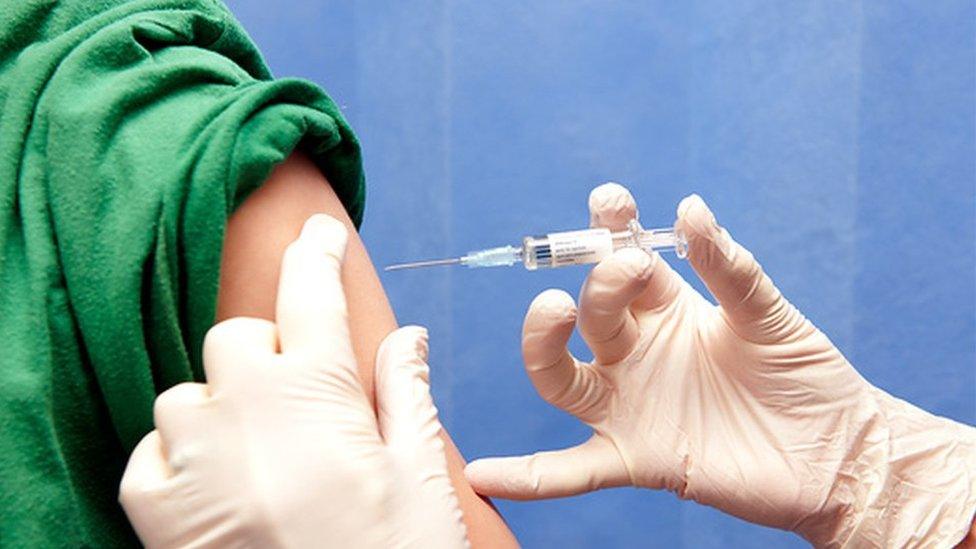
People who missed an earlier MMR vaccination can have a "catch-up" jab
More than 220 suspected cases of mumps have been reported at two universities, Public Health England (PHE) has said.
Students are being urged to ensure they are vaccinated due to an outbreak at Nottingham Trent University and the University of Nottingham.
A total of 40 cases have been confirmed so far.
PHE, which confirmed the cases, said it was working with the universities to persuade unprotected students to get the MMR jab.
Dr Vanessa MacGregor said: "We have seen a rise in the figures recently and teenagers and young adults who have not had two doses of MMR vaccine are particularly vulnerable.
"School leavers and other young adults who have not received the MMR or only received one dose should ensure that they take up the offer of MMR vaccination."
PHE said latest figures showed cases of mumps in England had decreased in 2018, external, with 1,024 confirmed cases compared to 1,796 in 2017.
A spokesman for Nottingham Trent University said it was offering support to those affected.
"If any students have any symptoms of the illness we would encourage them to visit their GP as they would do normally and inform a relevant member of staff on their course if it has an impact on their studies," he said.
The University of Nottingham said it has been alerted to a number of suspected cases by colleagues at the Cripps Health Centre on University Park campus.
"We are working closely with Public Health England to monitor the situation," a spokeswoman said.

Mumps
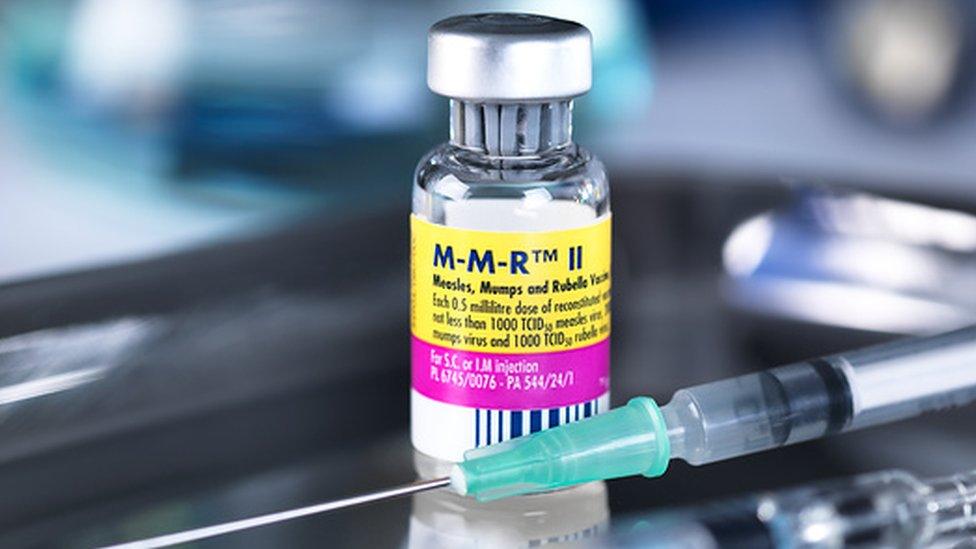
Two doses of the MMR vaccine are given to children before they start school in the UK
Mumps is a contagious viral infection which causes swelling of the parotid glands.
General symptoms can include headache, joint pain, feeling sick, tiredness, loss of appetite and a high temperature.
It is spread in the same way as colds and flu - through infected droplets of saliva that can be inhaled or picked up from surfaces and transferred into the mouth or nose.
A person is most contagious a few days before the symptoms develop and for a few days afterwards.
Source: Public Health England

In 1998, a study by Andrew Wakefield linked the MMR vaccine to autism, and although he was struck off the UK medical register and his research has been completely discredited, it had an impact on the coverage of the vaccine, with rates dropping to about 80% in the late 1990s and a low of 79% in 2003.
Numerous public health campaigns have increased uptake in the years since, but health bosses have warned social media has been fuelling fear over vaccines based on misinformation.
On Tuesday, Health Secretary Matt Hancock called for new legislation to force social media companies to remove content promoting false information about vaccines.
According to World Health Organisation figures, measles cases tripled in Europe between 2017 and 2018, with concerns also raised about a global rise in recent years.

Follow BBC East Midlands on Facebook, external, Twitter, external, or Instagram, external. Send your story ideas to eastmidsnews@bbc.co.uk, external.
- Published1 March 2019
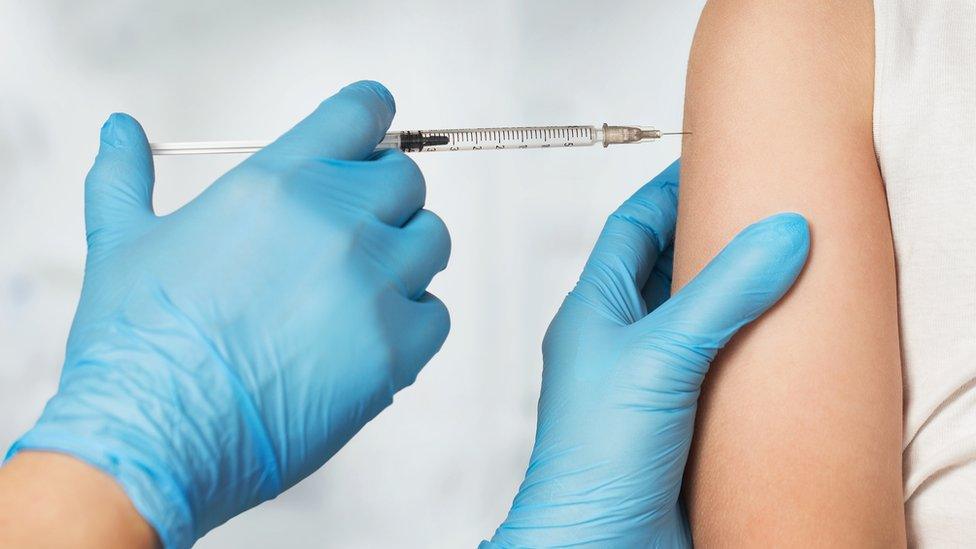
- Published24 January 2019
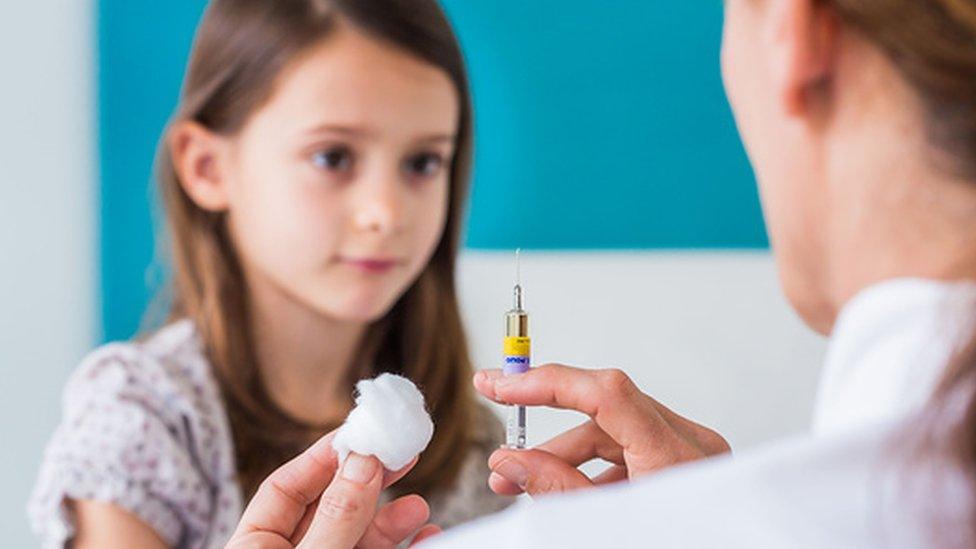
- Published1 November 2018
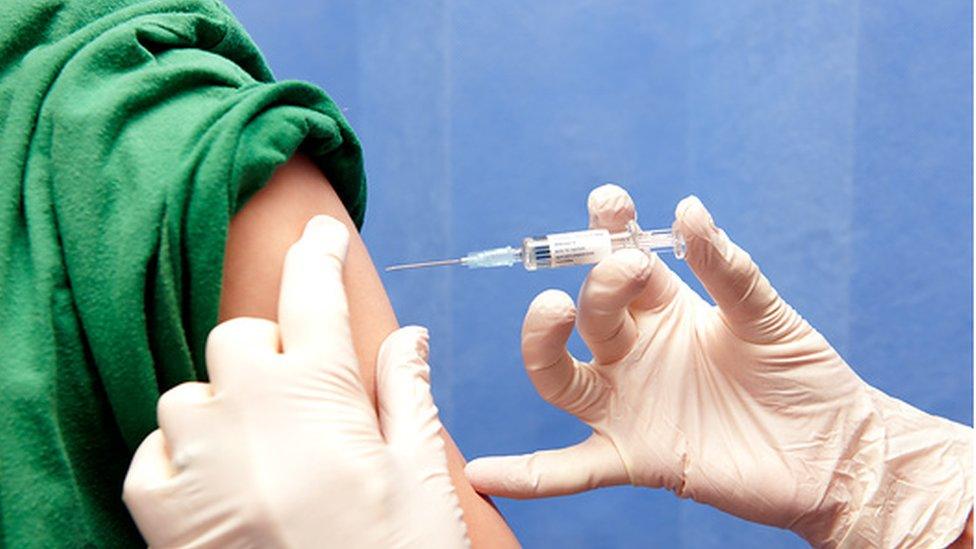
- Published27 September 2017
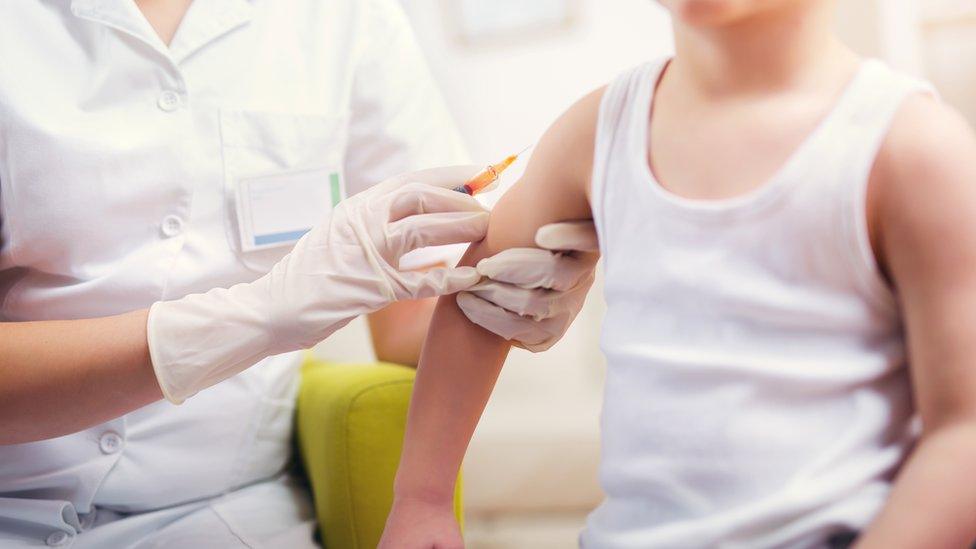
- Published31 January 2017
